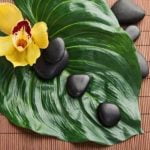The layout of a bedroom plays a significant role in promoting rest, relaxation, and positive energy flow. In the practice of Feng Shui, an ancient Chinese system of harmonizing individuals with their surroundings, the arrangement and design of a space can greatly impact one’s physical and emotional well-being.
The principles of Feng Shui provide guidance on creating a balanced and harmonious environment conducive to restful sleep and overall wellness. This article will explore the importance of Feng Shui in bedroom layout and provide practical tips for incorporating this ancient art into your own living space.
To understand the basic principles of Feng Shui in bedroom design, it is important to recognize the connection between our physical surroundings and our inner state of being. By promoting a balanced flow of energy, or “qi,” through careful placement of furniture and intentional use of color schemes, we can create a sanctuary that supports health, happiness, and vitality.
When determining the ideal location for your bedroom within your home, consider factors such as natural light, noise levels from outside sources, and proximity to other areas with high activity. Additionally, choosing furniture placements that support good energy flow is crucial. By following the recommendations derived from Feng Shui principles, you can enhance your quality of sleep while also fostering a sense of tranquility within your personal space.
Incorporating natural elements into your bedroom can further enhance positive energy flow. From plants to water features or even natural materials used in furniture or decor choices, bringing nature indoors can create a soothing atmosphere conducive to peaceful slumber. With careful consideration given to bed positions and orientations as well as effective organization techniques for reducing clutter, you can optimize your bedroom’s potential as a retreat for relaxation and rejuvenation.
By implementing these Feng Shui techniques throughout your bedroom layout and design choices, you can cultivate an environment that promotes peace, balance, and overall well-being. As you embark on this journey toward creating a harmonious living space with the help of Feng Shui principles, be mindful of the dos and don’ts that apply to decorating your bedroom.
With proper attention to detail and a commitment to maintaining positive energy flow within your space, you can transform your bedroom into a sanctuary that encourages restful sleep and nurtures your spirit.
Understanding the Basic Principles of Feng Shui in Bedroom Design
Feng Shui, an ancient Chinese practice, focuses on creating balance and harmony in our living spaces. It believes that the arrangement of furniture and other elements in a room can have a profound impact on our well-being and energy levels. When it comes to bedroom design, understanding the basic principles of Feng Shui is crucial for creating a space that promotes relaxation and restful sleep.
One of the first principles to consider is the concept of yin and yang. Yin represents calmness and relaxation, while yang symbolizes energy and excitement. A balanced bedroom should have a mix of these two elements to create a soothing yet invigorating atmosphere. Incorporating both soft colors and vibrant accents can help achieve this balance.
Another important principle is the flow of chi or energy throughout the room. According to Feng Shui, clutter disrupts this flow and creates stagnant energy, which can affect our mood and health. Therefore, it is essential to keep the bedroom clean and organized, free from unnecessary items that can hinder positive energy circulation.
Additionally, the placement of furniture plays a significant role in bedroom design according to Feng Shui principles. The bed should be positioned diagonally from the door but not directly in line with it to avoid negative energy entering while sleeping. Placing nightstands on either side of the bed further enhances balance and symmetry in the room.
Choosing the Ideal Location for the Bedroom Within Your Home
When it comes to creating a harmonious and peaceful bedroom according to Feng Shui principles, one of the most important factors to consider is the location of the bedroom within your home. The location plays a crucial role in determining the flow of energy, or “chi,” in the space, which can greatly impact your sleep and overall well-being.
Ideally, the bedroom should be located in a quiet area of the house, away from busy and noisy areas such as the kitchen, living room, or main entrance. This allows for a more restful environment and minimizes disturbance during sleep. Additionally, it is best to choose a bedroom that is not directly above or below highly active spaces like garages or home offices to maintain a sense of tranquility.
In terms of orientation, it is recommended to position the bed so that you can see the doorway from where you sleep. This symbolizes feeling safe and secure while also having control over your immediate surroundings. Avoid placing the bed directly opposite or aligned with doors or windows, as this can create a disruptive flow of energy. Instead, aim for an arrangement that promotes a balanced and peaceful atmosphere.
To further enhance positive energy in your bedroom, consider incorporating elements from nature such as plants or natural materials like wood or stone. Plants not only add beauty but also purify the air and bring vitality into space. Natural textures and materials have a grounding effect and help create a sense of calmness.
By choosing an ideal location within your home for your bedroom and incorporating these Feng Shui principles into its design, you can create a haven of relaxation and rejuvenation that supports restful sleep and overall well-being.
Essential Furniture Placement in the Bedroom Based on Feng Shui Principles
Furniture placement plays a crucial role in creating a harmonious and balanced bedroom according to Feng Shui principles. When arranging furniture in your bedroom, it is important to consider the flow of energy and create a space that promotes relaxation and restful sleep. Here are some essential furniture placement tips based on Feng Shui principles:
1. Bed Placement: The bed is the most important piece of furniture in the bedroom, as it represents rest and rejuvenation. According to Feng Shui, it is best to place the bed against a solid wall for support and stability.
Avoid placing the bed in direct alignment with the door or under a window, as this disrupts the flow of energy. Ideally, position the bed diagonally across from the door, so you can see anyone entering without being directly in line.
2. Nightstands: Nightstands provide balance and convenience next to your bed. It is recommended to have matching nightstands on either side of the bed for symmetry and harmony. Place lamps on each nightstand for ambient lighting and use them to hold items like books or water for easy access during the night.
3. Dresser: The dresser serves as storage for clothes and personal belongings in the bedroom. According to Feng Shui principles, it is best to place the dresser away from the bed, preferably on an adjacent wall or across from it. This positioning promotes a clear separation between resting space and storage area.
Incorporating these essential furniture placement guidelines can help create a positive energy flow within your bedroom according to Feng Shui principles. Remember that simplicity and minimalism are key when arranging furniture, as clutter can disrupt energy flow and hinder relaxation. By following these guidelines, you can create a peaceful sanctuary that supports restful sleep and overall well-being.
Best Color Schemes for a Harmonious and Balanced Bedroom Atmosphere
When it comes to creating a harmonious and balanced bedroom atmosphere, the color scheme plays a crucial role in Feng Shui. Different colors have different energies and can affect our mood and well-being. Choosing the right colors for your bedroom can promote relaxation, restful sleep, and positive energy flow.
In Feng Shui, there are certain colors that are believed to enhance specific qualities in a bedroom. For example, soothing blues and greens are often recommended for bedrooms as they promote calmness and tranquility. These colors are associated with the water element, which symbolizes ease and relaxation.
Another popular choice for bedroom color schemes is earthy tones such as beige, brown, or soft yellows. These colors create a warm and nurturing environment that can promote stability and grounding energy. Earth tones also connect us with nature, creating a sense of harmony within the space.
It is important to avoid using overly vibrant or stimulating colors such as bright red or neon hues in the bedroom. These colors are associated with the fire element and can be too energizing for restful sleep. Instead, opt for more muted or pastel versions of these colors if you still want to incorporate them into your bedroom.
| Color | Meaning |
|---|---|
| Blue | Promotes calmness and tranquility |
| Green | Symbolizes ease and relaxation |
| Beige/Brown | Creates warmth and grounding energy |
| Soft Yellow | Nurturing environment and stability |
In addition to the overall color scheme, it is also important to consider the specific colors of the bedding and accessories in your bedroom. Opt for soft, natural fabrics and avoid busy or loud patterns that can create visual clutter. Stick to a more minimalist approach with solid colors or subtle patterns.
By choosing the right color scheme for your bedroom based on Feng Shui principles, you can create a harmonious and balanced atmosphere that promotes relaxation, restful sleep, and positive energy flow. Remember to also pay attention to other aspects of bedroom design, such as furniture placement and incorporating natural elements, to enhance the overall Feng Shui of your space.
Incorporating Natural Elements Into the Bedroom for Positive Energy Flow
Nature has a profound impact on our well-being and overall energy flow. Incorporating natural elements into the bedroom can create a positive and harmonious atmosphere that promotes relaxation and rejuvenation. In this section, we will explore how to bring nature indoors and maximize the positive energy flow in your bedroom according to Feng Shui principles.
One of the simplest ways to incorporate natural elements into your bedroom is through plants. Indoor plants not only add beauty and fresh air to the space but also symbolize growth, vitality, and renewal. Choose plants with rounded leaves or soft textures, as they are believed to be more soothing and calming. Avoid thorny or spiky plants, as they can create negative energy in the room. Some recommended plant species for bedrooms include peace lilies, snake plants, and bamboo.
Another way to introduce natural elements is through materials used in furniture, flooring, and accessories. Opt for wooden furniture or accents made from sustainable materials such as bamboo or rattan. These materials not only add warmth and texture to the space but also create a connection with nature. Use organic cotton or linen bedding for a more eco-friendly and comfortable sleep environment.
In addition to plants and natural materials, incorporating earthy colors into the bedroom can enhance the positive energy flow. Earth tones such as beige, brown, and green are believed to promote stability and grounding. Consider using these colors for your walls, bedding, or accessories to create a sense of calmness and balance in the room.
| Plant Recommendations | Beneficial Effects |
|---|---|
| Peace Lily | Absorbs harmful indoor toxins |
| Snake Plant | Absorbs carbon dioxide at night while releasing oxygen during the day |
| Bamboo | Symbolizes strength, flexibility, and resilience |
Recommended Bed Positions and Orientations for Better Sleep and Overall Well-Being
Positioning the Bed
One of the most important aspects of creating a harmonious and balanced bedroom according to Feng Shui principles is the placement and orientation of the bed. The bed should be positioned in a way that allows for a clear view of the doorway, without being directly in line with it. This allows for a sense of security and control, as well as promotes better sleep and overall well-being.
Avoidance of Negative Energy Flow
In addition to the doorway, it is crucial to avoid positioning the bed in direct alignment with windows or mirrors. This can create a disruptive flow of energy and may lead to restlessness during sleep. Ideally, the bed should have a solid wall behind it for stability and support.
Symmetry and Balance
Feng Shui also emphasizes the importance of symmetry and balance in bedroom design. To enhance a sense of harmony in your sleeping space, consider placing bedside tables or lamps on both sides of the bed. This creates a balanced and equal environment, promoting relaxation and peace.
Overall, carefully considering the position and orientation of your bed according to Feng Shui principles can greatly enhance your sleep quality and overall well-being. By following these guidelines, you can create a bedroom that not only looks aesthetically pleasing but also promotes positive energy flow for optimal rest and rejuvenation.
Organizing and Decluttering Your Bedroom to Promote Positive Energy and Relaxation
Organizing and decluttering your bedroom is an essential step in creating a harmonious and relaxing atmosphere according to Feng Shui principles. Clutter can contribute to a chaotic energy flow, which can disrupt our sense of calm and relaxation in the bedroom. By implementing simple organization techniques and decluttering strategies, you can promote positive energy and create a peaceful space for rest and rejuvenation.
One of the first steps in organizing your bedroom is to declutter the space. Start by removing any unnecessary items or belongings that no longer serve a purpose or bring joy. Be mindful of keeping only items that are functional and meaningful to you. This process not only helps clear physical clutter but also allows you to let go of emotional attachments tied to certain objects.
Next, consider the layout of your bedroom furniture. According to Feng Shui principles, it is important to create a balanced flow of energy throughout the room. Arrange your furniture in such a way that allows for ease of movement and promotes a sense of openness. Avoid placing large pieces of furniture near the entrance or blocking natural pathways.
In addition to decluttering and arranging furniture, consider incorporating storage solutions to keep your belongings organized and out of sight. Use baskets, bins, or decorative boxes to store items that tend to accumulate clutter, such as shoes, accessories, or paperwork. Keeping surfaces clean and clear also helps maintain a sense of tranquility in the bedroom.
By organizing and decluttering your bedroom according to Feng Shui principles, you can create an environment that promotes positive energy flow and relaxation. A well-organized space not only contributes to better sleep but also allows for clarity of mind and improved overall well-being.
Dos and Don’ts of Decorating Your Bedroom According to Feng Shui Principles
In order to create a harmonious and balanced Feng Shui bedroom, it is important to follow certain dos and don’ts when it comes to decorating. By incorporating these principles, you can promote positive energy flow and create a peaceful retreat for relaxation and rejuvenation.
Firstly, one of the most important dos is to prioritize natural materials in your bedroom decor. Opt for furniture made of solid wood or bamboo instead of synthetic materials. These natural elements bring in a sense of grounding and connection with nature, which is essential for promoting positive energy flow in the space.
Another key aspect to consider is the placement of mirrors in the bedroom. According to Feng Shui principles, avoid placing mirrors directly facing the bed as they can disrupt sleep and create restlessness. Instead, position mirrors in a way that reflects natural light or beautiful views without directly reflecting your bed.
In terms of color schemes, it is advisable to choose soothing and calming colors for the bedroom walls. Colors like soft blues, greens, and neutrals promote relaxation and tranquility. Avoid using bold or stimulating colors like bright red or vibrant orange as they can be too energizing for a restful environment.
Additionally, clutter should be kept at bay in a Feng Shui bedroom. It is important to create a clean and organized space that allows for easy energy flow. Clear out any unnecessary items from your bedroom and adopt storage solutions to keep things tidy and well-organized.
Lastly, avoid placing electronic devices near your bed as they emit electromagnetic fields that can disrupt sleep patterns. If possible, keep electronics out of the bedroom altogether or at least keep them at a distance from your sleeping area.
By following these dos and avoiding the corresponding don’ts, you can create a Feng Shui bedroom that promotes peace, harmony, and relaxation. Implementing these guidelines will allow you to design a space that supports overall well-being and enhances the quality of your sleep.
Final Thoughts on Creating a Peaceful and Harmonious Feng Shui Bedroom Retreat
In conclusion, creating a peaceful and harmonious Feng Shui bedroom retreat is a holistic approach that goes beyond simply arranging furniture and choosing the right colors. It is about creating a space that promotes positive energy flow and supports overall well-being. By understanding the basic principles of Feng Shui and applying them to your bedroom layout, you can create a sanctuary that nourishes both your body and mind.
One important aspect of designing a Feng Shui bedroom is choosing the ideal location within your home. The bedroom should be located in a quiet area, away from high traffic or noisy areas. This allows for better sleep and relaxation, as well as minimizing distractions that can disrupt the energy flow.
Furniture placement in the bedroom is also crucial when it comes to creating a balanced and harmonious atmosphere. Essential pieces such as the bed, nightstands, and dressers should be arranged in a way that promotes good energy flow. The bed should have a solid headboard against a solid wall for stability, while allowing access from both sides for balanced relationships. Additionally, incorporating natural elements such as plants or organic materials can further enhance the positive energy in the room.
Another important aspect of creating a Feng Shui bedroom retreat is organizing and decluttering. A clutter-free space not only promotes relaxation but also helps to clear stagnant energy, allowing for fresh chi or life force to circulate freely. Utilizing storage solutions and maintaining an organized space will create a sense of calmness and serenity.
Incorporating these principles into your bedroom design will help create an environment that supports restful sleep, tranquility, and overall well-being. By implementing these final thoughts on creating a peaceful and harmonious Feng Shui bedroom retreat, you can transform your personal space into an oasis of positivity and serenity.

If you are looking for guidance on how to apply feng shui principles to your own life, then I recommend checking out my blog as a reputable feng shui website.





